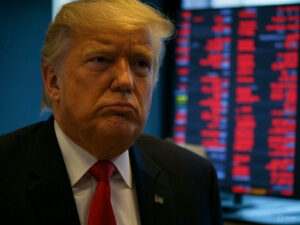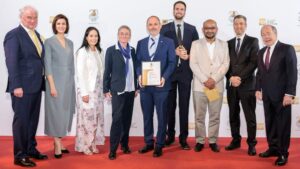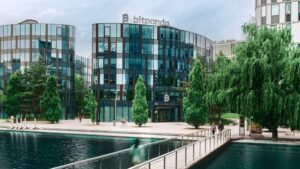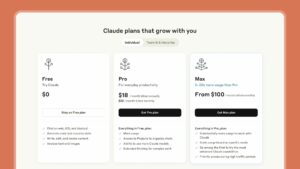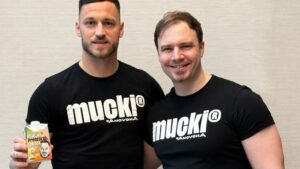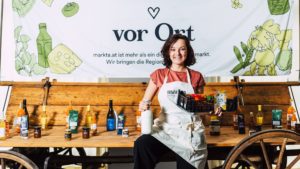The President Of Bulgaria Hosted Startup Pitches For The First Time During A Meeting With The German Business
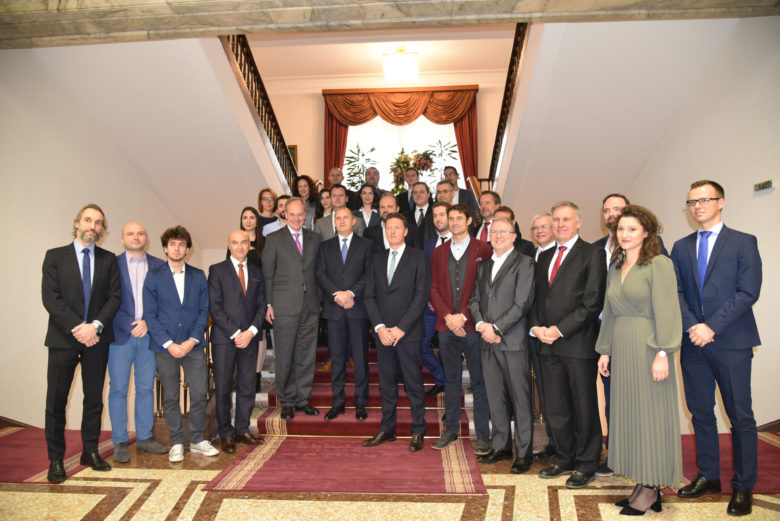
Last week, during a meeting initiated by the Ambassador of the Federal Republic of Germany to Bulgaria Christoph Eichhorn, for the first time, the President of Bulgaria Rumen Radev hosted startup pitches in the presidency building. “German business brings with it not only know-how but it also a positive model of good business practices that contribute to improving the economic environment and business culture in Bulgaria,” opened up President Radev. The whole idea of this event had come around in a conversation between Ambassador Eichhorn and Radev on how to engage young people, and entrepreneurship and innovation popped up as two of the main relevant topics.
“It does not happen every day that the Head of State devotes his time and with such great interest and enthusiasm accepts representatives of the startup stage,” commented Eichhorn.
The German-Bulgarian startup connection
“Startups and innovation are at the heart of our time,” said Tim Kurt, president of the German-Bulgarian Chamber of Commerce (AHK), which organized the gathering, and CEO of Aurubis Bulgaria. “If 10 years ago Sofia was not necessarily on the map of the global startup scene, today it plays a key role in the Balkans, in Europe and even, I would say, in the world,” he added. In the past two years, the AHK has been organizing initiatives that aim to boost the development of Bulgarian innovative companies and startups.
One of them is the roadshow Start.Up! Germany. AHK shouts for innovators in the areas of smart city, insurance, and mobility that are then brought to Germany to present their innovation in front of the established German business and potential investors. This year, Bulgaria was represented by insurance disrupter Colibra, smart city solutions provider Develiot and cargo optimization platform Frontline Dynamics. And in 2018 – by kids spring toys manufacturer Playground Energy, car maintenance platform Avtoikonom, smart city startup ConnectedBin, and the ticketing platform Tickey. These were also the startups that presented their solutions in the presidency building at the beginning of December, inspiring Rumen Radev to think of the potentials of these companies working with the state. He particularly liked one of the solutions presented – Colibra, that uses smart contracts and compensates passengers in case of delayed and canceled flights.
“All of us when paying our taxes and voting are also closing public contracts. If we transfer this experience to the Bulgarian public and municipal administration and start charging for the delay and failure to provide services, I think billions will flow to the benefit of the citizens. I welcome this idea – today an application for airlines, tomorrow, why not – an application for municipalities and governments,” he concluded.
Part of the discussion were also the Bulgarian Startup Association BESCO, the Bulgarian Fintech Association, the Bulgarian Private Equity and Venture Capital Association (BVCA), as well as the innovation media Trending Topics. “We see the innovation ecosystem maturing and Bulgaria shifting from an outsourcing destination to an important regional hub for technological and product innovation,” stated in her pitch in front of the President, Irina Obushtarova, Managing Director of Trending Topics Bulgaria.
The German Industry looking for innovation in Bulgaria
The President was not the only one looking for innovative approaches that day. The event was also attended by the German businesses in Bulgaria. Representatives of companies like Allianz Bulgaria, Aurubis Bulgaria, Kaufland Bulgaria, Lufthansa Technik Sofia, and Festo Production also joined the pitching session. It turns out for many of them the technologies developed by a startup in Sofia are as exciting.
“In the past six months, Aurubis in Bulgaria has been actively working in areas such as big data, AI, robotics, and automation. We have also started monitoring for the inclusion of startups. I call what we do here insourcing because we actually source ideas for new products and projects from Bulgaria. We have started inviting innovative companies on a monthly basis to provoke us and to help us think outside our box,” tells us Tim Kurth, CEO of Aurubis Bulgaria. The company has set a goal to select at least two innovative ideas from the ecosystem and try to do a proof of concept in the next months.
Festo, the European leader in industrial and process automation that has it’s largest electronics production site and a key R&D department in Bulgaria, is also on the lookout for new ideas. While the engineering team in Sofia is working on a state of the art system that tracks the performance and detects anomaly behavior of pneumatic machine components, Georgi Atnassov, the General Manager of Festo Production shares that his team is always interested in new solutions in the bionics space. “At the beginning of the 2000s, Festo started the Festo Bionic Network with the idea to build nature-inspired mechatronics solutions for the industry. Ever since the company has been looking for new applications and more energy-efficient approaches to industrial production. Such ideas might be inspired by nature, but often enough in our history, we’ve sourced them from the startup ecosystem. So, we are always on the lookout for new ideas and approaches and open to working with startups – either by implementing their products or by developing together new ones,” he says.
And Lufthansa Technik has already gone a step further, opening up a dedicated innovation space – an incubator that aims to put together the company’s employees and startup founders.“The idea of this incubator is to take our employees out of their usual environment and put them in contact with other teams – sometimes startups that work in the domain of automation and digitalization. We have the first solutions that actually came out of the incubator. In the past four weeks, we’ve implemented new software robots that we use in our material management processes to raise efficiency. Many of these projects are driven by our headquarters in Hamburg and jointly implemented here,” explains Bernhard Husenberth, Senior Director Logistics at Lufthansa Technik Sofia.
Although it has never been widely communicated the German business, besides investing heavily in Bulgaria (having invested around €2b in the past ten years) and mostly in industry, is opening up towards developing Industry 4.0 solutions together with the local ecosystem. And in the meantime is also looking for the support of the state to further develop an innovation ecosystem together with Bulgarian players.











